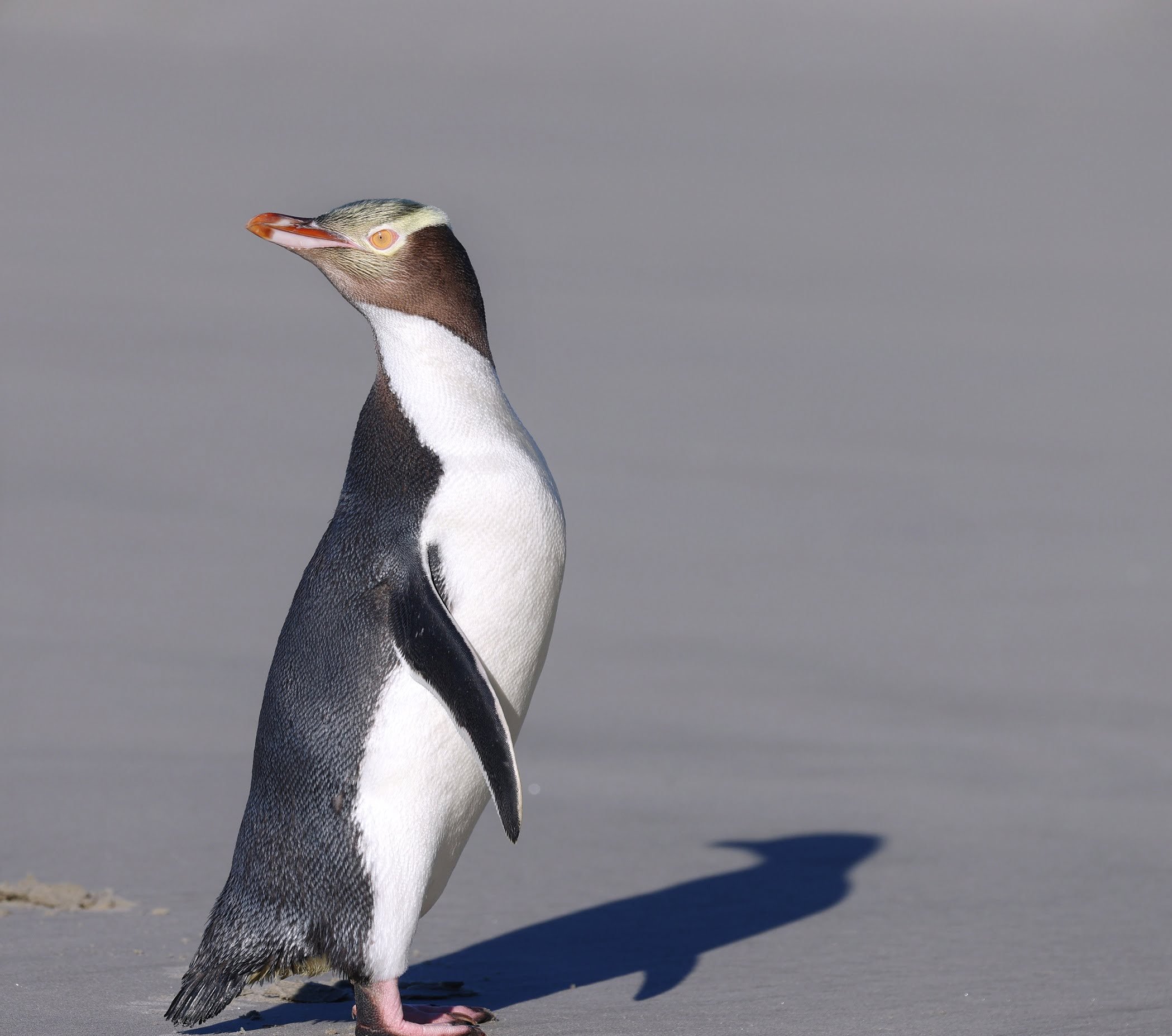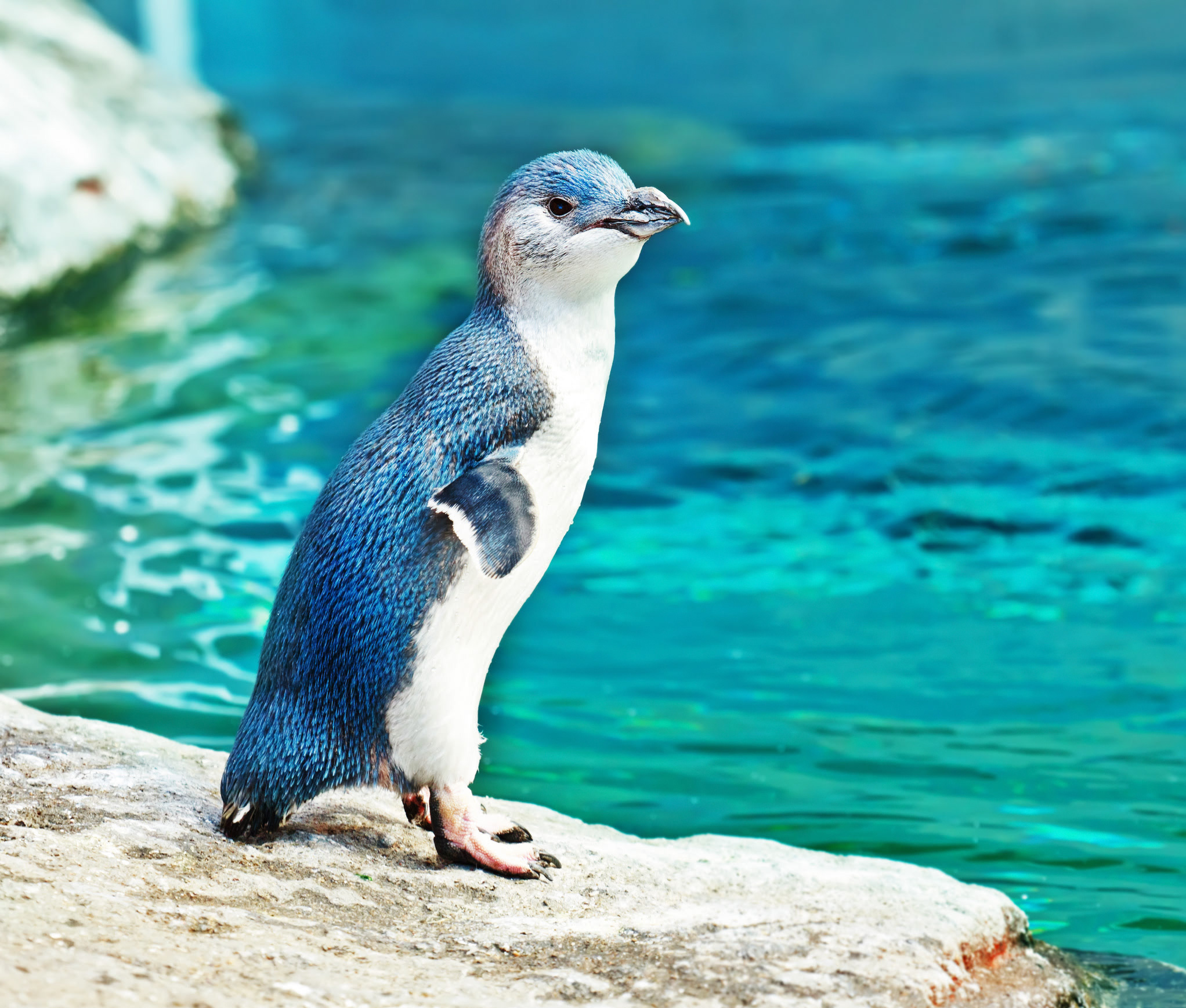THE OLDEST PRIVATE ECO TOURISM BUSINESS IN NEW ZEALAND
The OPERA – Otago Peninsula Eco Restoration Alliance – is a private eco reserve focused on conservation, reforestation, rehabilitation, and education. The operation was originally founded as Penguin Place in 1985 making it the oldest private ecotourism operation in New Zealand.
From the beginning
When the operation was originally established, the hoiho were struggling with the devastating loss of their natural habitat of coastal forest, with most of it having been cleared for farming. In addition to habitat loss, the hoiho were suffering from increased predation due to introduced mammals that were brought to New Zealand by humans as they settled the islands.
To help the hoiho, a reserve was established encompassing the dunes and coastal areas of the family’s working sheep farm where hoiho were found to be breeding. Habitat restoration and predator control work was immediately started to give the penguins an increased chance of survival.
Later, nesting boxes were added to provide shelter, shade, and privacy that hoiho require for successful breeding. These nesting boxes also minimize the risk of predation, with three solid walls and only one entry, providing protection for penguins while the lengthy process of natural habitat restoration takes place.
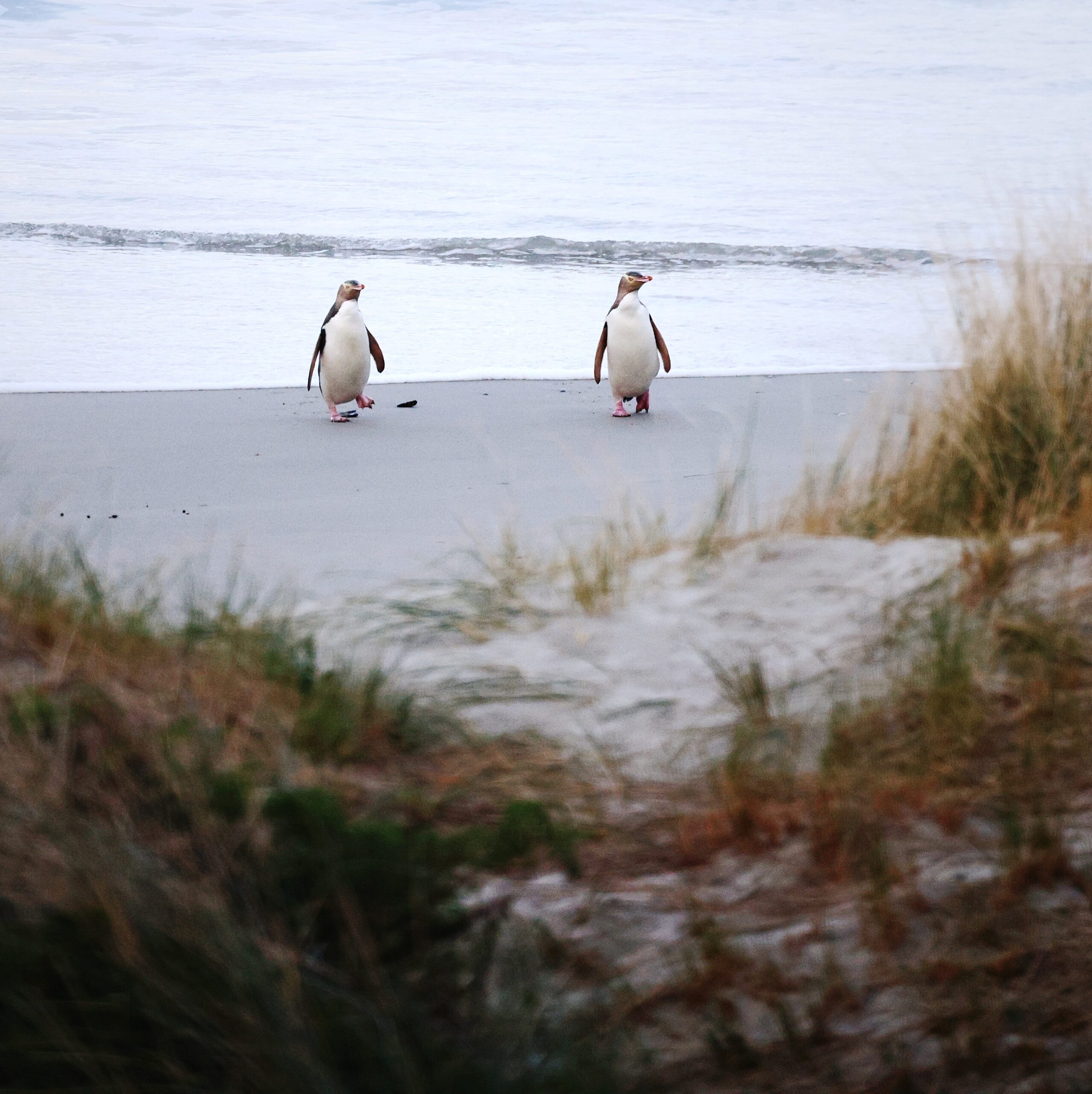
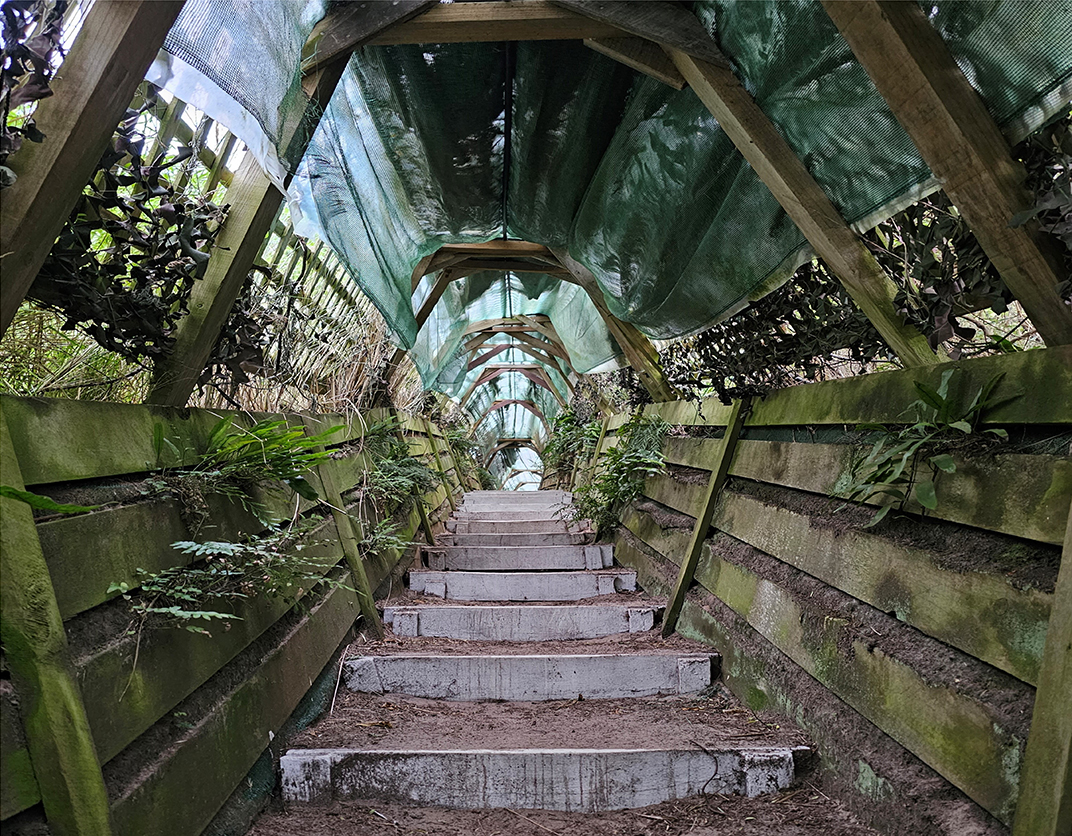
Tracks, trenches and hides
A system of walking tracks and a unique set of trenches and hides were established throughout the reserve. Today, guests taking wildlife tours at The OPERA are guided through this special system of more than 2 kilometers (1.25 miles) of trails within our reserve where they can experience incredible ocean and land vistas, as well as an abundance of plants and wildlife.
From our tacks, guests may also be guided through a unique network of nearly 700 meters (0.5 mile) of trenches that open into hides, offering unique viewing when wildlife is present. This special system allows guests to travel within the reserve while reducing the impact of human presence which may interfere with the natural behaviours of penguins and other animals who are visiting, nesting, and living here in the reserve.
Increasing need for intervention
The past two decades have unfortunately been catastrophic for the hoiho with a loss of nearly 75% of the population. These losses are due to consecutive breeding seasons with disease, increased starvation, and predator attacks, as well as reduced survival of younger penguins. As a result of those factors, there are now only an estimated 1,500 hoiho in the world, with less than 500 living on the mainland of New Zealand.
The time is very short, and the choice is very clear, either we as a society intervein to care for this species, or we face the day soon when the hoiho will be extinct.
By joining us today, you are contributing to the welfare of the hoiho and all living species within our reserve. Our work is primarily funded by tour revenue and donations. Thank you for helping us and for doing all you can to live in harmony with nature.
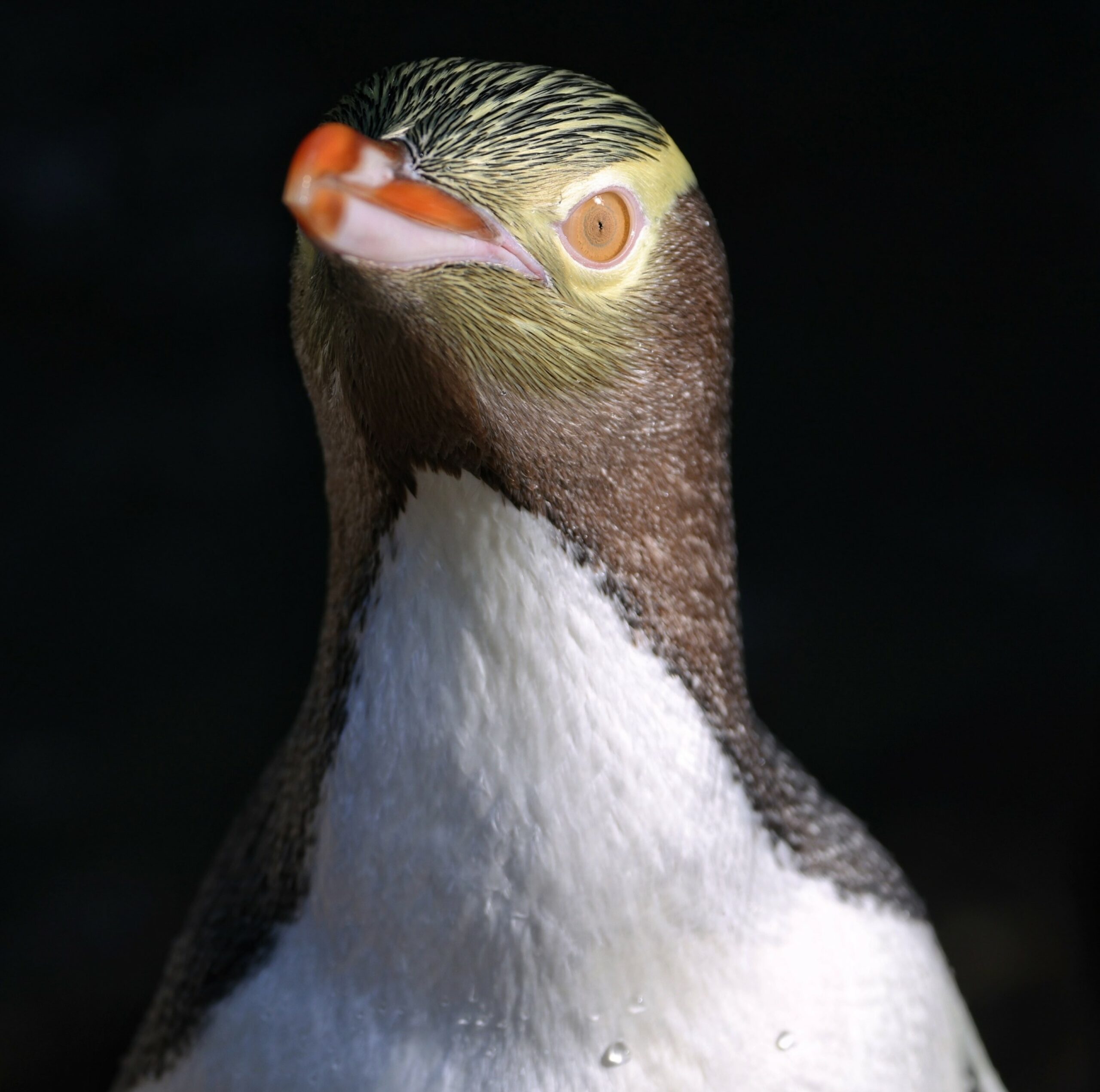

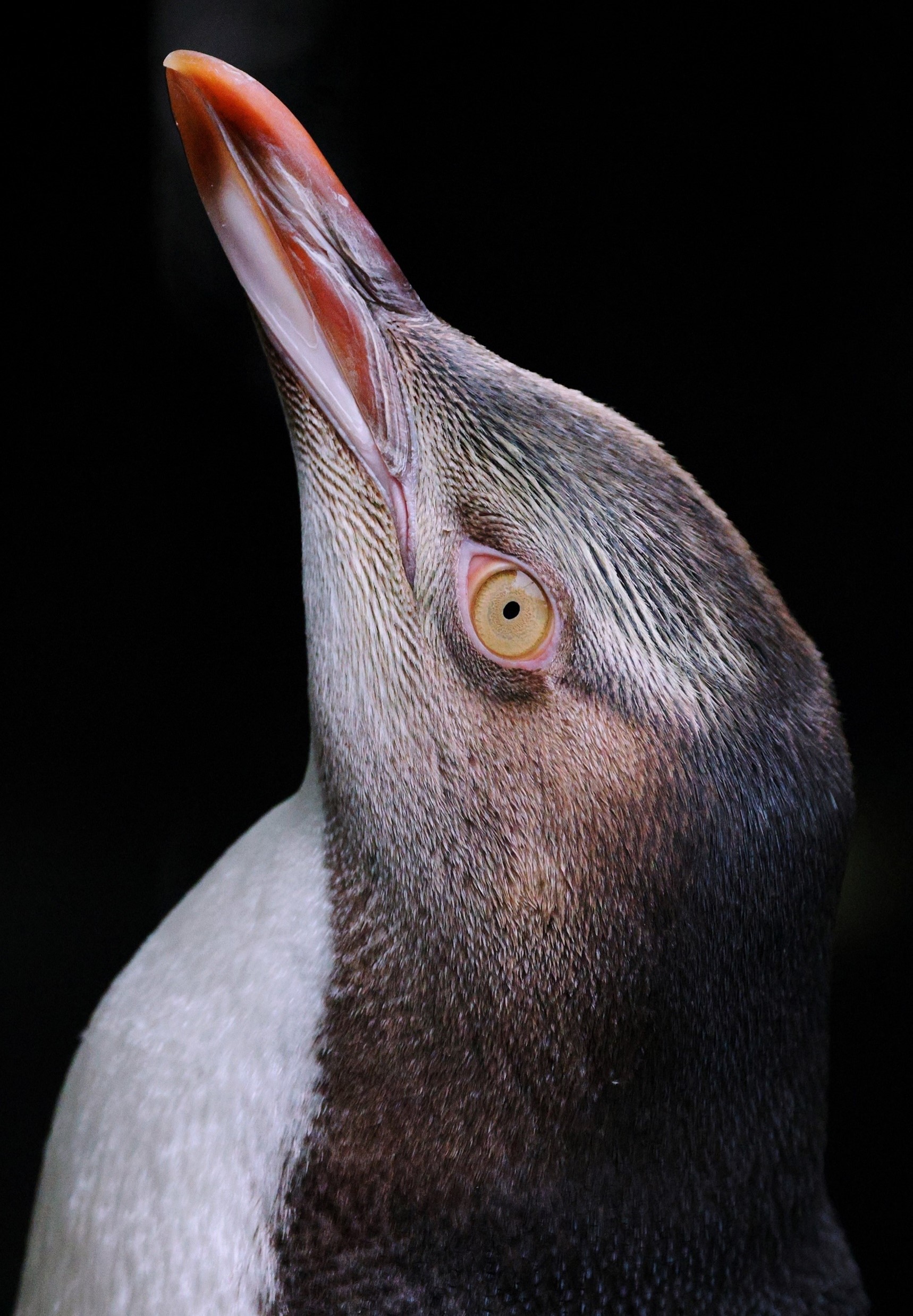

Rehabilitation Centre
An on-site rehabilitation centre was established at The OPERA to care for sick, starving, and injured penguins. Working with the Department of Conservation, Yellow-eyed Penguin Trust, and the Wildlife Hospital Dunedin, we are now caring for more than half the mainland population of hoiho each year, as well as several other species of penguins. During their time in rehab, our staff work diligently to care for the penguins and keep them as stress free as possible. Unfortunately, due to continued challenges such as disease, climate change, food shortages, habitat loss and encroachment, and other human caused impacts, some birds come through our rehabilitation centre more than once, with certain individuals being seen three or more times within a single year.
As a further step in caring for the wildlife within our reserve, The OPERA has also begun providing rehabilitation services for kororā (little penguins) which live on our property. We are excited to be taking preventative measures to ensure the health of the monitored colony of nearly 100 of these incredible little birds. Additionally, research has become a key focus of our work. Our staff have also joined nationwide conservation efforts to monitor sea lions by collecting data on those living on our beaches. We are also working to research and survey all native wildlife present within the property such as forest birds, lizard, invertebrate and freshwater species.
The care provided through our rehabilitation centre is making an enormous contribution to the penguins living on our property, as well as those brought to our facility by partner organisations. Through our intervention, hundreds of penguins that otherwise would not have survived, are being rehabilitated to full health before being released back into the wild. We are incredibly proud that we are achieving a 98% survival rate of penguins who come through our rehabilitation centre.
Expanding our impact
While penguins remain an essential part of our work, The OPERA is expanding its focus on conservation and restoration. As of 2023, the reserve area within our property consisted of just over 60 hectares (150 acres) nestled on the coastline, dunes, and current forested areas. This includes a QEII covenant area which contains sections of native bush that was left standing when the land was cleared for farming, and to which plantings have been continuously added over the past three decades.
Work is now underway to develop a 100-year restoration and rewilding plan which will oversee the reforesting of pasture lands back into lush forests and grasslands teaming with native New Zealand wildlife. When complete, there will be more than 200 hectares (500 acres) of native habitats stretching across the property overseen by The OPERA, creating corridors of nature, from the harbour to sea, across the Otago Peninsula.
As these reforested areas take shape, our work will increasingly turn to rewilding initiatives such as the development of partnerships with captive breeding and release programs, as well as alliances with others working in the conservation space. Together we look forward to bringing back all types of species which once called the Otago Peninsula home and expanding the populations of native species currently living within our reserve.
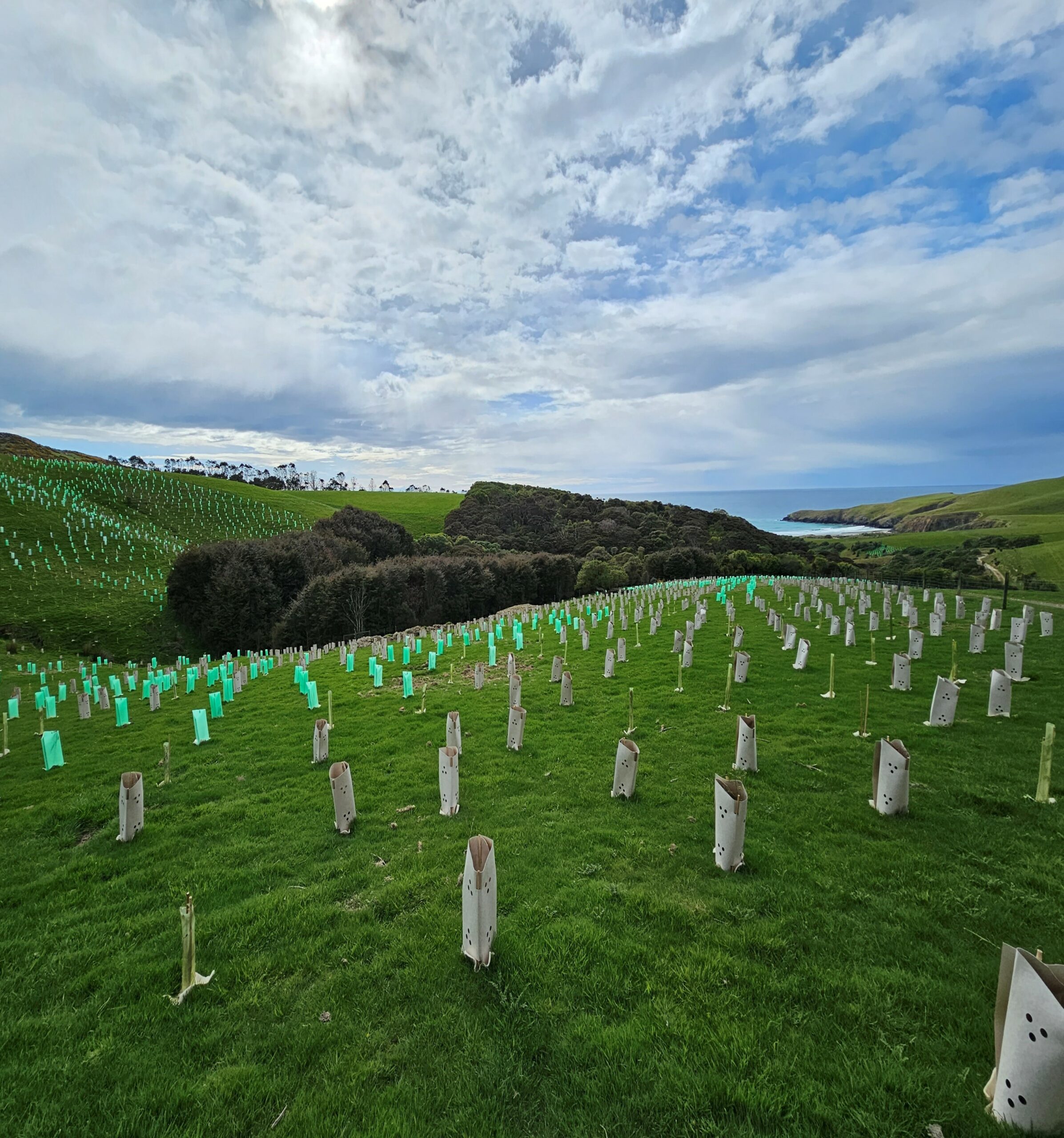

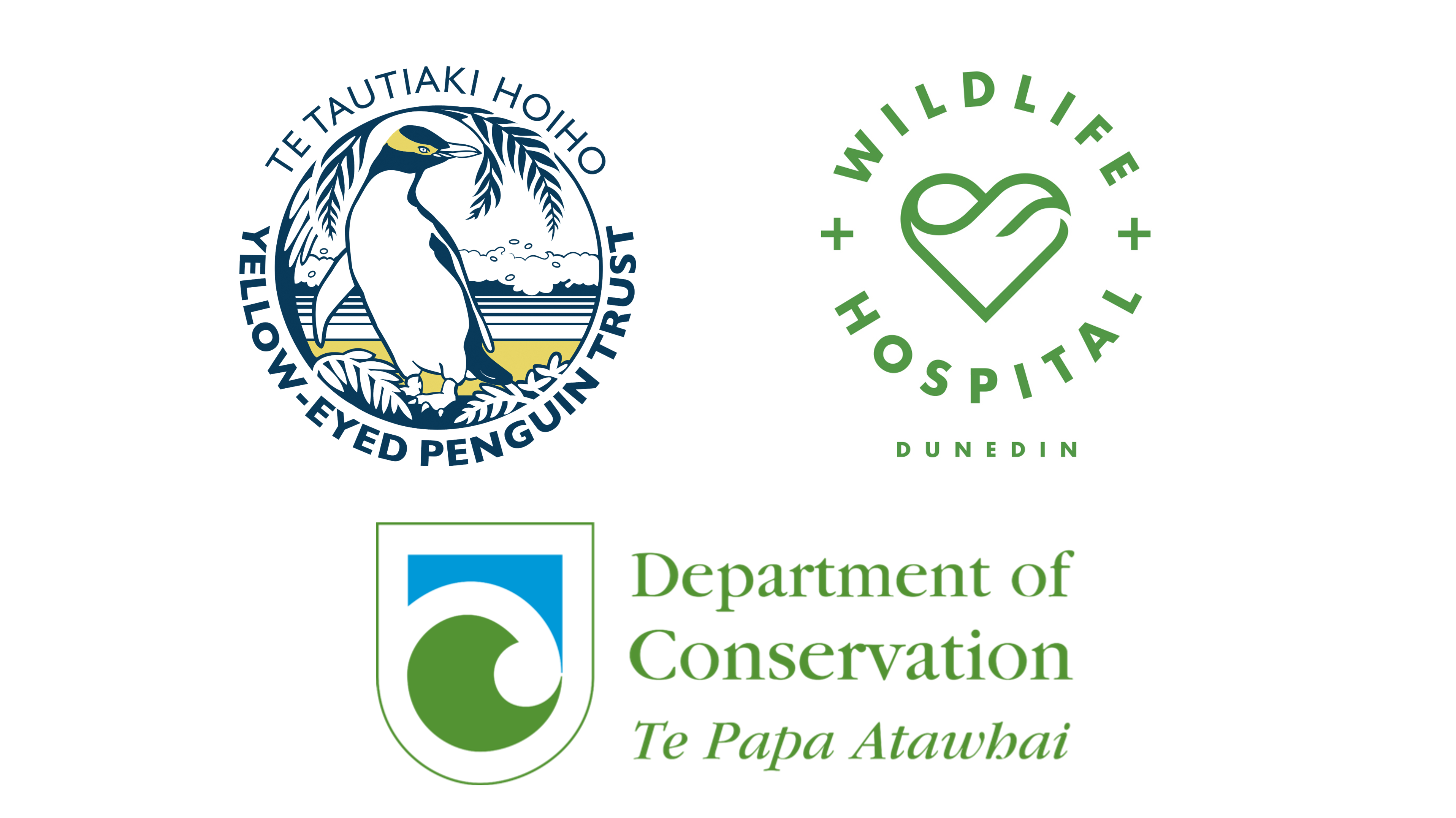

Special thanks to our Alliance Partners
In the tradition of kotahitanga (collective action) we are proud to join with our Alliance Partners in working to achieve even more together than we ever could alone. Each of these partners play a crucial part in the circle of intervention—from monitoring and uplifting in the wild, to medical care, rehabilitation, and finally return to the wild—we join together in kaitiakitanga (guardianship) of the penguins of the South Island.
Donate today
Join the effort to reforest and rewild the Otago Peninsula.



